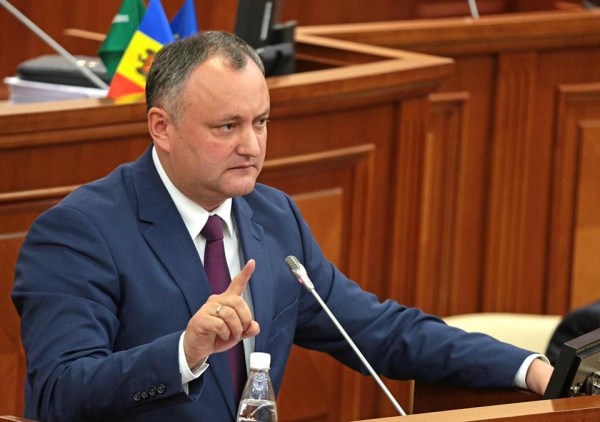Moldovan President Dodon thanks Russia for its position in the face of the ‘provocations’ by Moldova’s government
At a meeting with Valentina Matviyenko, Moldovan President Igor Dodon thanked the Russian authorities for their position regarding the actions of the Moldovan government, which oppose the actions of the Presidernt, RIA Novosti reporetd.
Dodon met with the chairman of the Federation Council in Ashgabat, where they arrived for the opening of the 5th Asian Indoor Games. In a conversation with Matviyenko, Dodon noted that there have been both positive and negative aspects in the relations between the two countries lately. "For our citizens, for our exporters, there were some very unpleasant things that occurred for the first time in 25 years of diplomatic relations between our countries," he said.
Dodon's statements are related to a number of diplomatic incidents that occurred in 2017 and concern the actions of the Moldovan government and parliament. In May, Moldovan authorities expelled a group of Russian diplomats. In early August, the Moldovan Foreign Ministry declared Russian Deputy Prime Minister Dmitry Rogozin persona non grata. In July, the Moldovan parliament passed a resolution demanding the withdrawal of Russian troops from the territory of Transnistria.
These decisions were adopted by the Moldovan government and the parliamentary majority, in opposition to the president. In a conversation with Matviyenko, Dodon called such incidents provocations. "I want to thank the Russian leadership represented by you for the fact that despite all the provocations made by some parties that still control the parliamentary majority and the government, the Russian Federation consistently shows its openness and support to the Moldovan people," he said.
In early August, after Rogozin was declared persona non grata in Moldova, Dodon appealed to Russian authorities, asking them to refrain from sanctions against Chisinau. Later, in mid-August, he promised to "overthrow" the Moldovan government if it tried to drag the country into a regional conflict.
